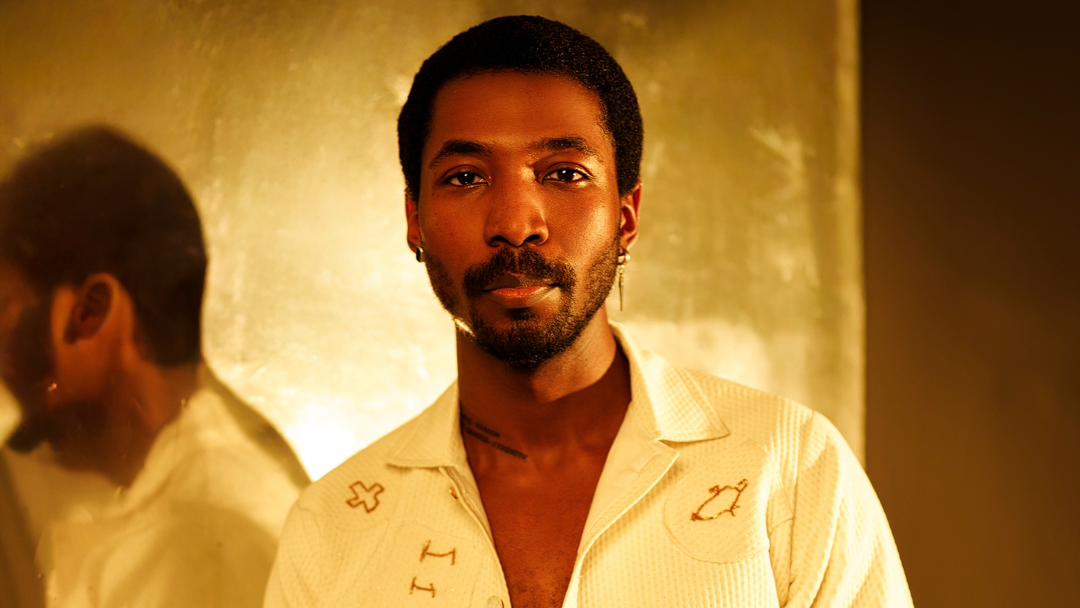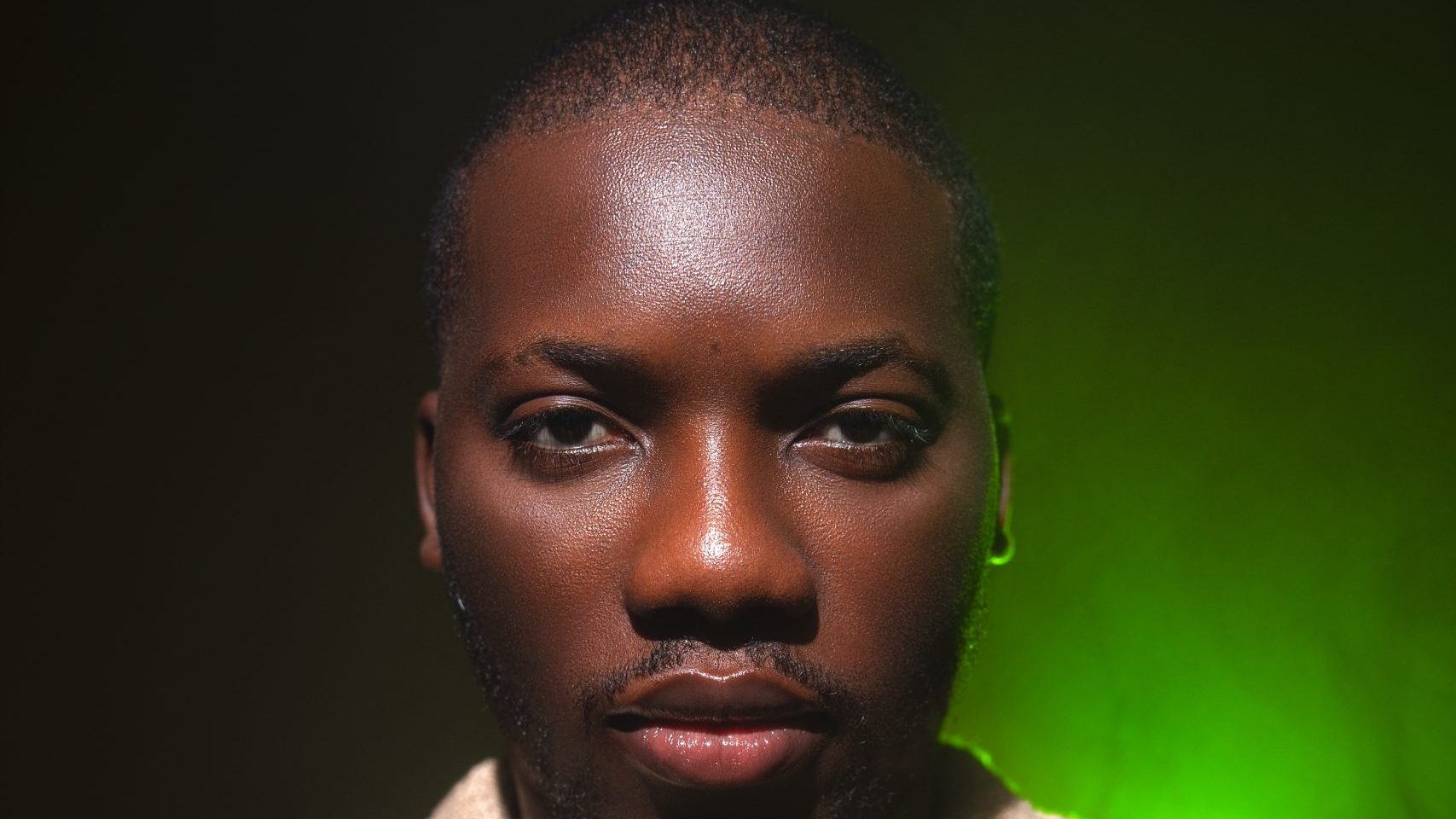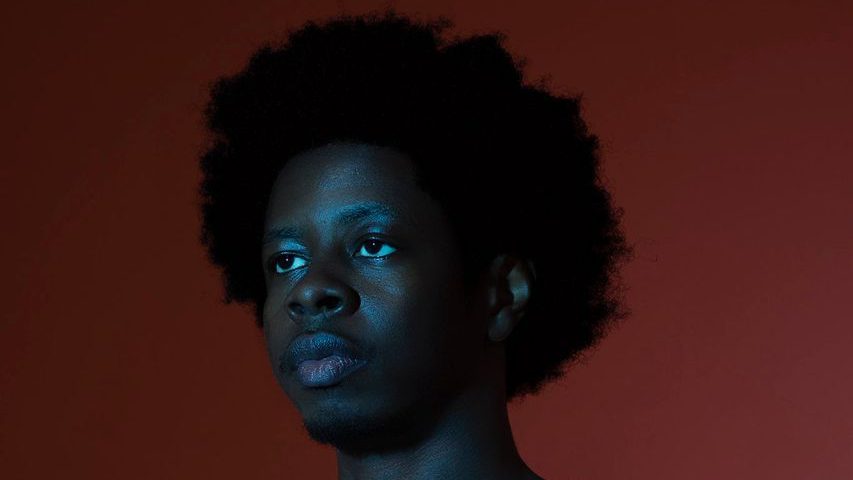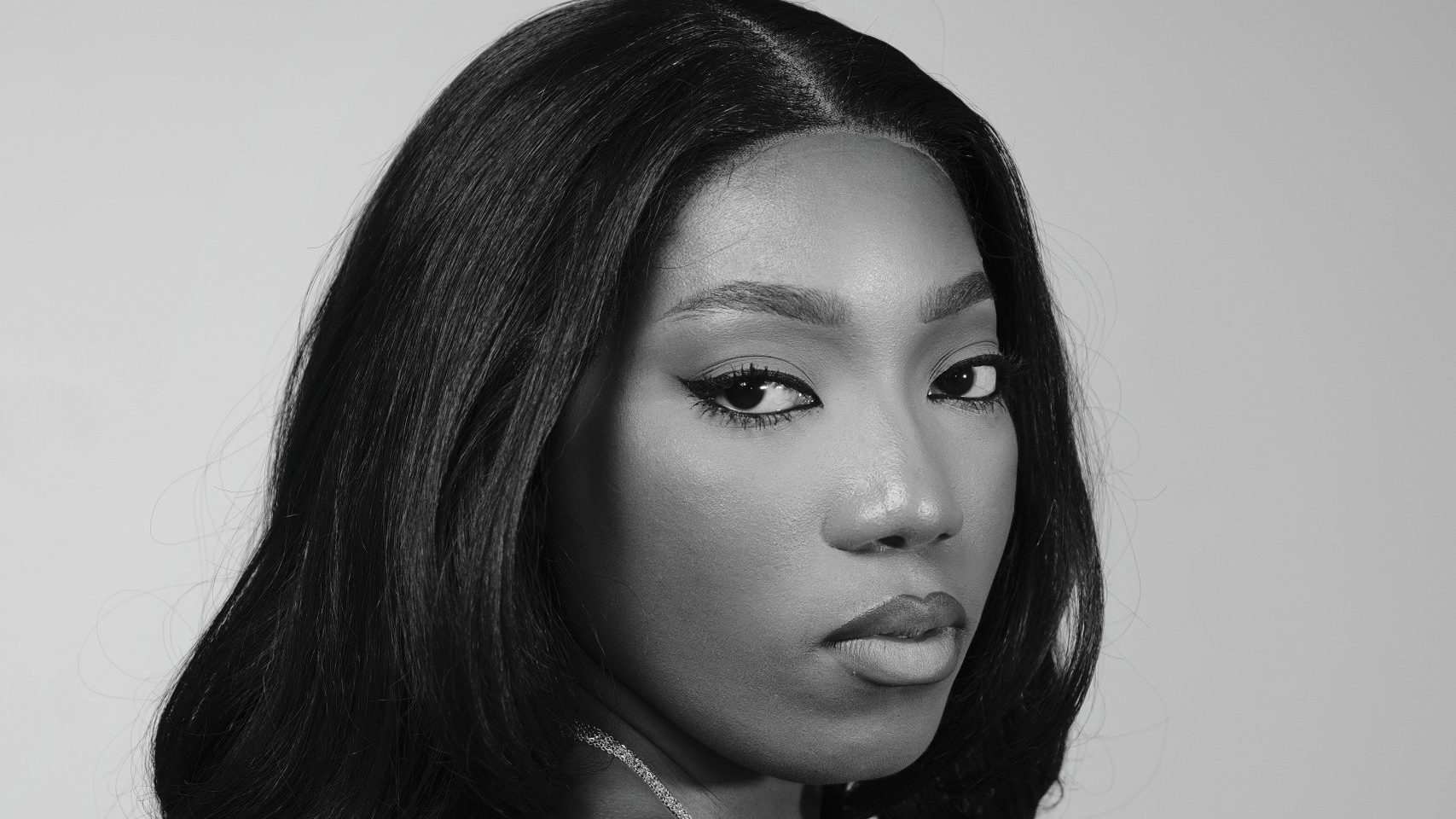Mádé Kuti might be only thirty years old, but that doesn’t mean he’s new to the game. He has almost as many years of musical experience as he does of life, having picked up the saxophone at the tender age of five. For most people, such an early start might be unfathomable, but perhaps not for a legacy artist like Mádé, who just so happens to descend from Afrobeat royalty: he’s the son of renowned six-time Grammy-nominated maestro, Femi Kuti, which makes him the grandson of the revolutionary Afrobeat pioneer, Fela.
For Mádé, ‘music’ and ‘life’ seem to be interchangeable words. From growing up in the New Afrika shrine and playing in his father’s Positive Force band to studying at the prestigious Trinity Laban Conservatoire in London, he has certainly developed his musical muscle. His 2021 album For(e)ward, released jointly with Femi’s Stop the Hate as the Grammy-nominated joint album called Legacy+, established him as one to watch. Now, Mádé has returned with “Chapter 1: Where Does Happiness Come From?”. He chats with us about his childhood, musical journey, forging his own path and the pressures (or lack thereof) of living with his name.
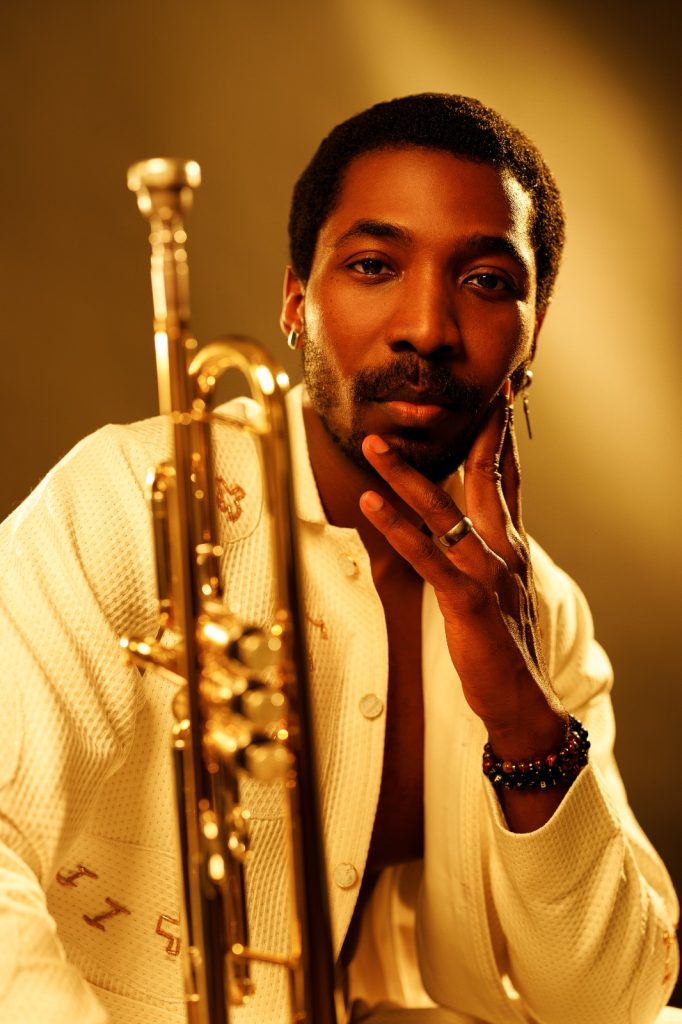
Growing up in The New Afrika Shrine is not the kind of childhood the rest of us could ever relate to. What was it like, and what’s your earliest memory of music becoming part of who you are?
Growing up in the Shrine was a beautiful experience for me. It allowed me freedom I couldn’t really get anywhere else, especially not in schools. I was free to be inquisitive, to be playful and expressive, and above all, to be able to watch my father on stage four times a week, performing for about four to five hours each set. It was watching him on stage and eventually asking him to teach me the sax and joining him on stage that fueled my passion for music. The Shrine was also my first introduction to Black history through the pictures and quotes from great Black and African leaders around its walls and pillars.
You’re often described as carrying forward the Kuti legacy. How do you balance honouring that heritage while establishing your own distinct voice?
I just try to be as true to myself as I can be. I love Afrobeat, and it’s the foundation of most of the music that I create, so I have a lot of fun exploring different sound worlds and textures with it.
You practice up to seven hours daily, on different instruments. On For(e)ward, you played every single instrument yourself (insane flex, by the way). What drove that decision, and how did it feel to have complete creative control?
I had been practising a lot, preparing for the album and planning to reach out to musicians that I thought would be cool to play with. At some point during the preparations, I realised I could play every instrument I was writing for and thought it would be a good challenge to try to perform the album solo. It was fun but very stressful, don’t think I’ll ever do that again.
Fair. Obviously, we’ve uncovered the fact that you play multiple instruments. At what point did you decide that you wanted to become proficient in six different instruments rather than sticking to the saxophone that you picked up at 5 years old?
I was really young when I picked up the basics of each instrument. It was really because I was quite indecisive about which instrument I wanted to major in and kept diverting my attention to the next instrument the moment I started to make reasonable progress in one instrument. In my late teens, I still couldn’t bring myself to abandon any of the instruments I was practising and decided to try to work on all of them collectively.
Your musical taste spans jazz, alternative rock, and Afrobeat. How do these seemingly different genres merge in your creative process to create what you call “modern Afrobeat”?
I make a lot of choices during the creative process, like every other composer. I’m theoretically informed enough to choose between different approaches as I compose, but a lot of the time I prefer to write without thinking of genre-based decisions and let the music flow out of me unfiltered. The results differ with each track, really.
Was there any point at all where you considered doing something other than music? Do you think that, growing up surrounded by and immersed in music the way you did, there was any other career path that could possibly have worked out for you?
I was very interested in music from a very young age and never really considered anything else. I had many other interests, but nothing I considered to pursue as a profession.
You released three singles leading up to the album – “I Won’t Run Away,” “Life As We Know It,” and “Wait and See.” How do you think these three tracks worked together to set up the larger conversation you’re having on Chapter 1?
They all fit within the theme of the album. They all have introspective lyrics that seek strength within the individual. They are also some of the numbers I perform live quite frequently, so I thought it would be nice to finally have them out for fans that come to the Shrine to see us often.
The album probes “the culture of competition, pride, and disunity that hinders progress and perpetuates cycles of broken leadership.” That’s quite specific. What have you observed that led you to this conclusion?
I think it’s quite evident in the daily life of the Nigerian. We excel at exceptional standards in every professional field, from law to the arts, and even sports. We have doctors all around the world, and super-wealthy businessmen and women everywhere. We reach very high academic standards in and out of the country, and yet there isn’t a single public sector in the entire country that functions at a reasonable standard. Public education is failing, especially at the secondary and primary school levels. Public hospitals are horrendous in several major areas. Transportation is chaotic, and our recently renovated airport is already falling apart. The national stadium at Surulere is a shadow of what it once was. I would expect that a people so skilled and intelligent would be able to collectively demand and work towards a functional country.
It’s because of this that I don’t think Nigeria’s problem can be summed up simply as bad leadership or an unskilled or uneducated population. I think there’s a very large informed, educated, and intellectual class that no longer sees itself responsible for the progress of their communities, and a lower class that has instilled in themselves the same character traits they have seen in their leaders for so long, and no longer believe they have any responsibility themselves to their communities.
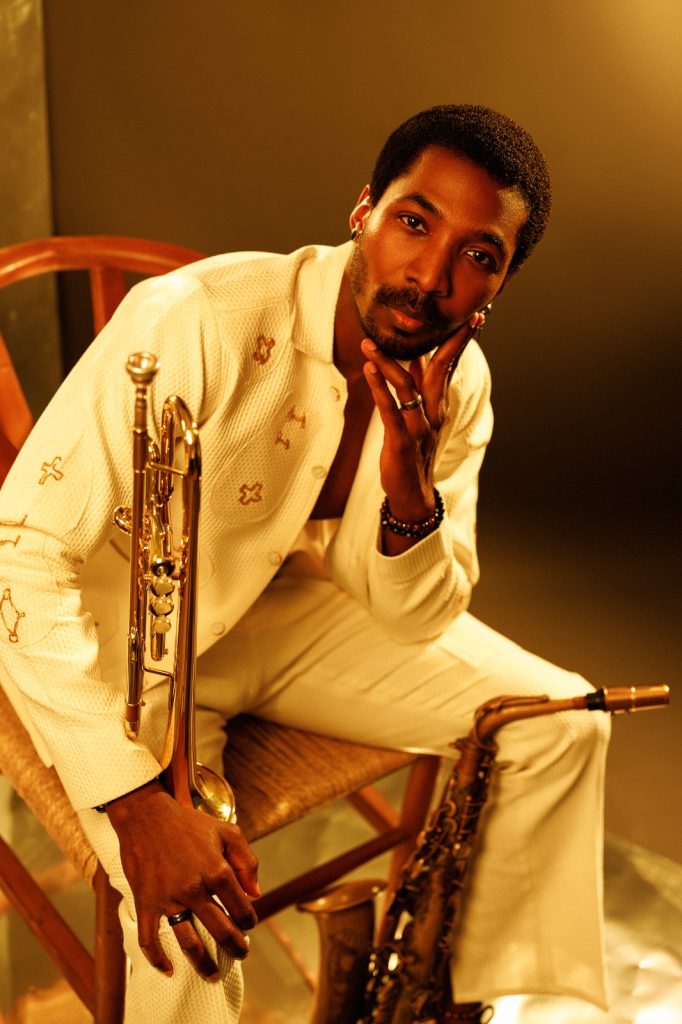
You participated in the 2020 #ENDSARS protests with your father. How does that activism connect to your new album’s call for “individual and collective responsibility” in achieving happiness and progress?
I don’t consider myself an activist in any way. I think it did the same to me as it did everyone else. It was powerful to see Nigerians work as a collective on such a large scale, followed by a stark reminder of the lengths leadership will go to quell that. And also how complacent we can be afterwards.
You call this a “bold and introspective body of work” after the politically charged For(e)ward. What made you decide to turn the lens inward while still maintaining social commentary?
I studied in London for 7 years and wrote For(e)ward after a year or two of coming back to Lagos. I finished this album after spending about 6 years in Lagos. The change in environment changed my perspective on things.
Your album was described as “a mirror and a message” that speaks to “a generation navigating uncertainty.” As someone in that generation yourself, what uncertainties are you personally grappling with?
It would be easier to list things I’m certain of. With the burst of disunity and chaos around the world and the ever-worsening situation in the country, I don’t think there’s anything political, economic, or at this point even communal to be certain about.
You’re not just a composer, but also a performer. There’s been your historic first headline show at The Shrine in 2021, forming The Movement band, performing with Coldplay at Glastonbury, and so on. How has your relationship with live performance evolved as you’ve grown as an artist?
Every show I’ve ever had or been a part of has been an experience filled with lessons. I learn, grow, experiment, make a few mistakes, make a few breakthroughs, and keep going just like that.
A lot of your band members were sourced via social media. Please take us through that process.
It was quite easy. I put up a post announcing I was looking for musicians, and I linked up with the first few musicians who reached out.
You invite listeners to “slow down, reflect, and reconnect with values that truly matter.” In our fast-paced world, how do you convince people to actually do this, and what values have you had to reconnect with in your own life?
One value I’ve definitely held very dearly over the last few years is humility. It really goes such a long way to be able to check yourself and put the burden of action on your shoulders before anyone else. I think other values like accountability and self-awareness fall under the very broad umbrella of humility.
The album asks, “Where does happiness come from?”. So, I have to ask, where does it come from for you?
I try hard not to answer this cause I don’t want to impose my answer on people. I expect people will have very different opinions, and I think that in itself is something worth preserving. That being said, for me, it’s from within and from each other (loved ones).
This is “Chapter 1” of a larger journey. What themes do you anticipate exploring in future chapters, and what does “a new kind of progress, one that begins from within” look like, practically?
I haven’t decided the direction of Chapter 2 yet; I have to live it first. That would look like a world without the need for nuclear weapons, mercenaries and arms dealers. Where people prioritise the progress of their immediate surroundings and don’t look to escape or forfeit its future. Where understanding and love are the primary values we are raised with at home and in schools. Where everyone strives to be the best version of themselves and maintain the bittersweet truth that none of us can live forever, and hold ourselves accountable for the kind of world we leave for our children.
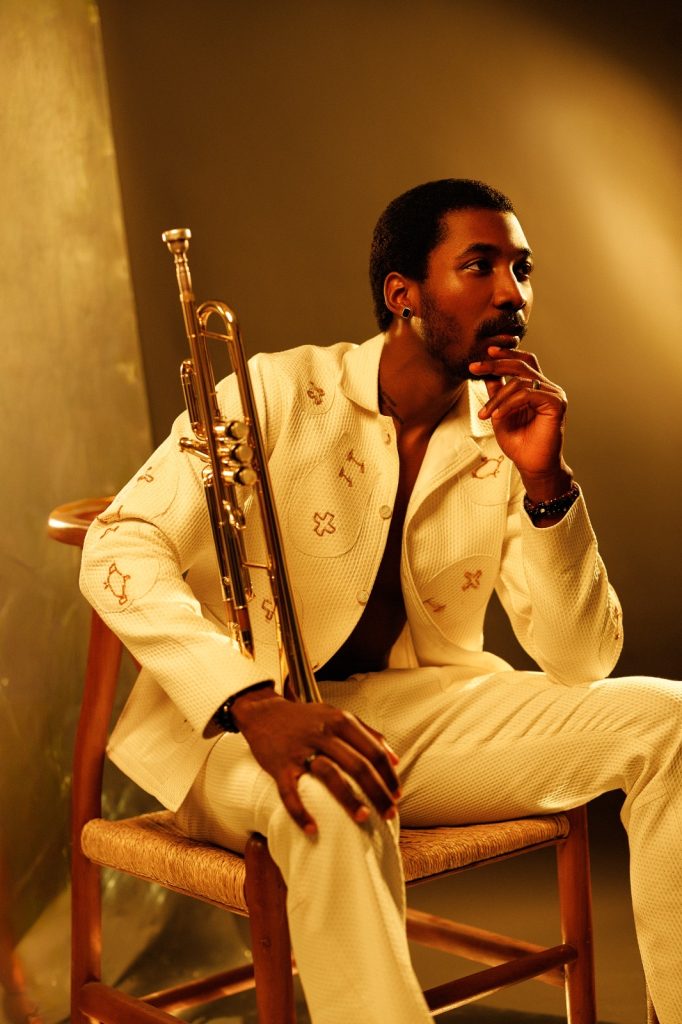
Looking back at that eight-year-old performing at the Hollywood Bowl versus the artist asking these deep philosophical questions today, what would surprise your younger self most about where you’ve ended up?
I think other than the very lovely bond we have maintained within the family, it would be my music. My younger self would love my music, especially some of my unreleased songs. He would be very proud!
If you could perform one musical experiment, completely separate from everything you’ve ever done, what would you do?
Probably to write a symphony for a large ensemble that relies mainly on West and Central African instruments mixed with Western European instruments, with Afrobeat as its core genre. That would be nice.
For young African artists looking up to you, what advice would you give about finding their own voice while respecting tradition?
I don’t think there are definite rules to follow when it comes to creativity and artistic freedom. Do your best, keep learning, keep experimenting, and have fun. Life is fleeting.
One can clearly see from this interview that you’re proud of your heritage and all that you have learnt from your family. But do you ever wish you didn’t have to bear such a weighty surname while charting your path in music and life in general? Does any part of you wish everyone would just talk about Mádé without including “Fela’s grandson, Femi’s son, Seun’s nephew…”?
I’m very proud of my heritage, and I take a lot of pride in it. I’ve never desired to be disassociated from my family or the family name.
What’s next for Mádé Kuti and The Movement that you’re most excited about?
We have some very cool shows lined up for the rest of the year, in and out of the country. We’re all looking forward to them, and I hope they all work out great.
